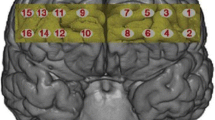Abstract.
Rationale: Previous work has suggested that memory impairments have been associated with the recreational use of "ecstasy". This previous work, however, has not taken into consideration the additional use of cannabis amongst those examined. Cannabis use has also been associated with memory impairment. There is therefore a clear need to explore the impact of both of these illicit substances upon memory ability. Objectives: To determine whether recreational use of ecstasy impairs memory and attentional ability and to explore the impact of the concomitant use of cannabis upon these cognitive functions. In addition, an exploration of subjective accounts of cognitive ability was undertaken to determine whether objective impairments were perceived by users in everyday functioning. Methods: Cognitive functioning was examined in three groups of young people: 15 regular users of ecstasy; 15 regular users of cannabis who had never taken ecstasy and 15 control subjects who had never taken any illicit substances. The Weschler Memory Scale (revised) and a computerised reaction time task were administered on a day when the subjects claimed to be drug free. In addition, subjects completed a biographical questionnaire and the Cognitive Failures Questionnaire (CFQ) in order to assess subjective accounts of cognitive slips. Results: Performance was similar across all three groups for measures of visual reaction time, auditory reaction time, complex reaction time, visual memory and attention and concentration. Significant impairment was found on measures of verbal memory in both cannabis users and ecstasy users. A significant impairment in performance was found on measures of delayed memory for the ecstasy users compared to both the cannabis group and the control group. Despite these findings, no differences in subjective ratings of cognitive failures were found between the groups. Conclusions: The present study provides additional evidence for long-term neuropsychological sequelae associated with the use of ecstasy, particularly with regard to delayed memory ability.
Similar content being viewed by others
Author information
Authors and Affiliations
Additional information
Electronic Publication
Rights and permissions
About this article
Cite this article
Rodgers, J. Cognitive performance amongst recreational users of "ecstasy. Psychopharmacology 151, 19–24 (2000). https://doi.org/10.1007/s002130000467
Received:
Accepted:
Issue Date:
DOI: https://doi.org/10.1007/s002130000467




